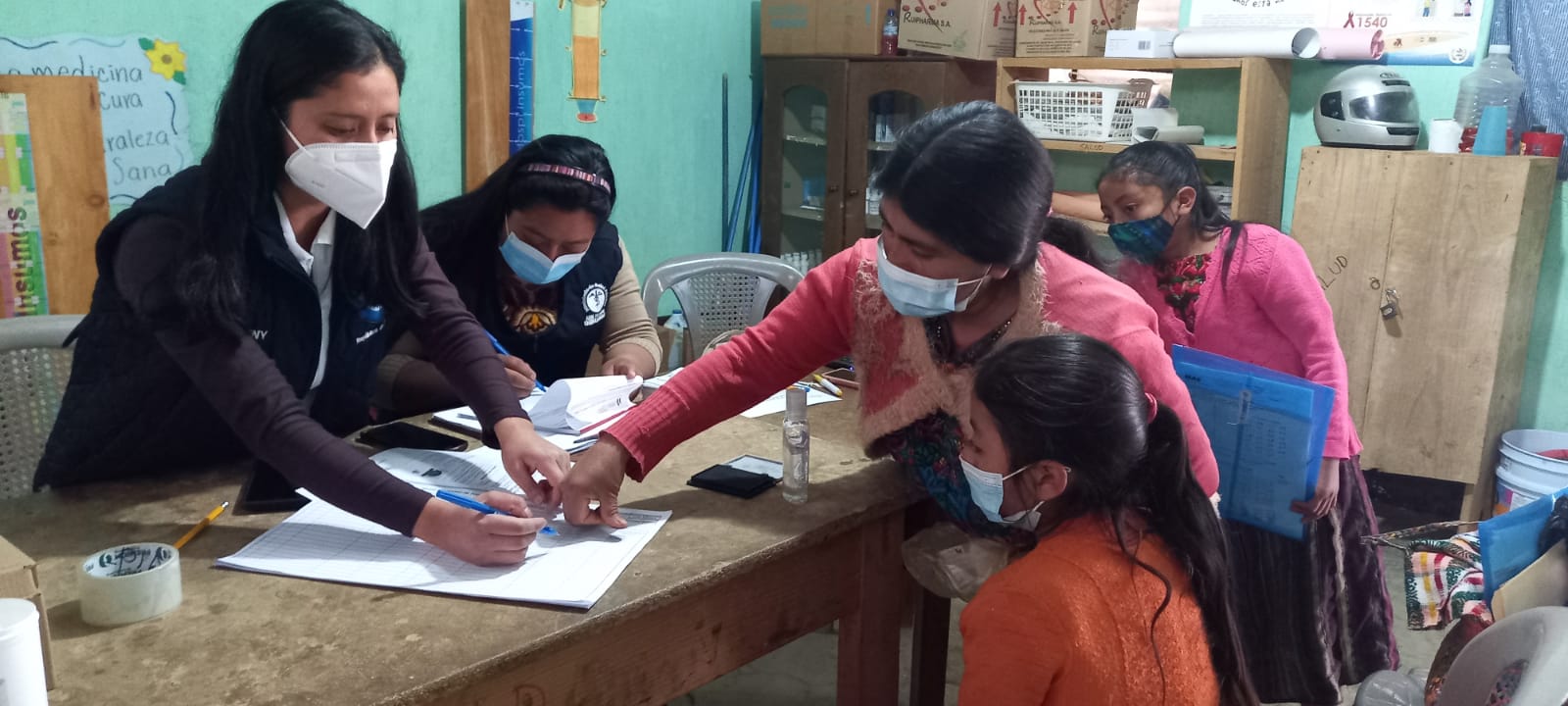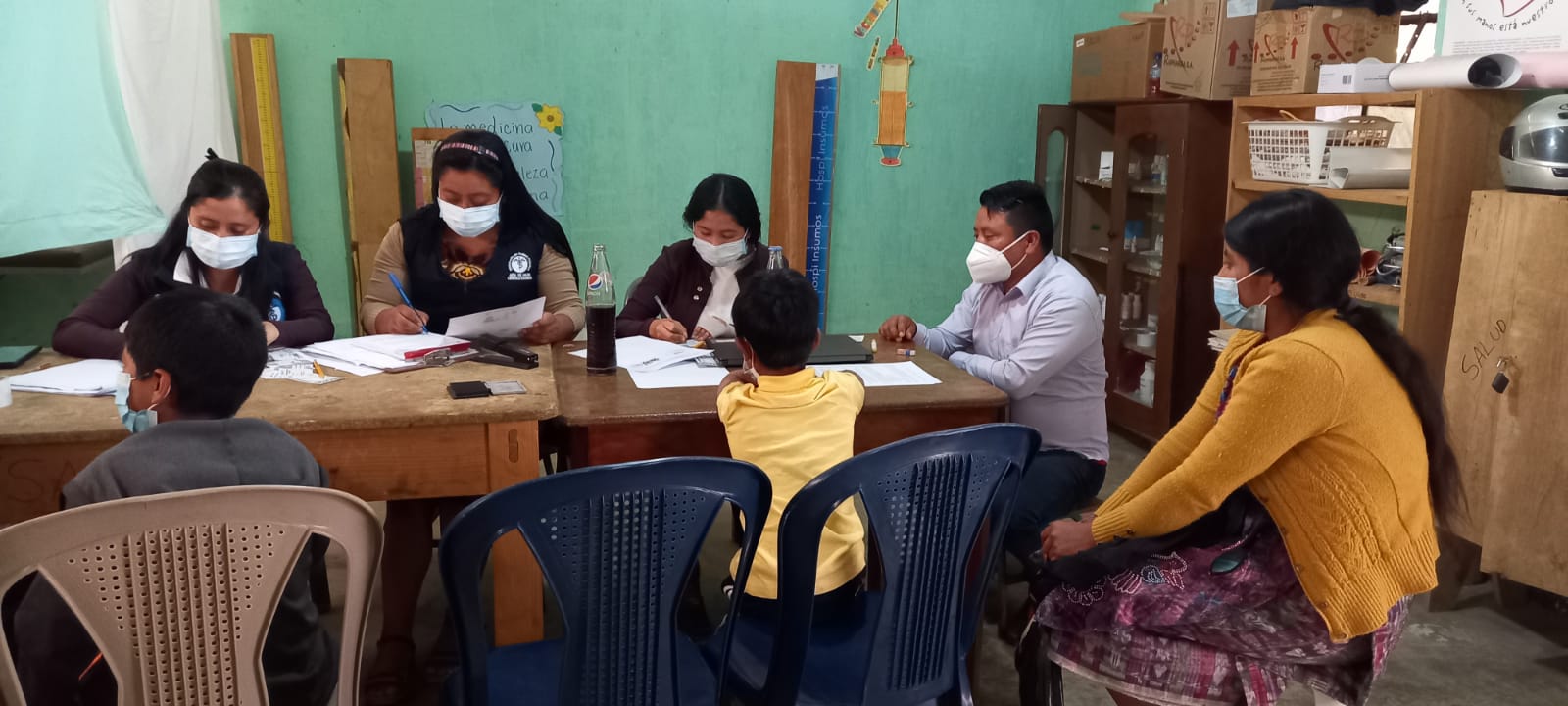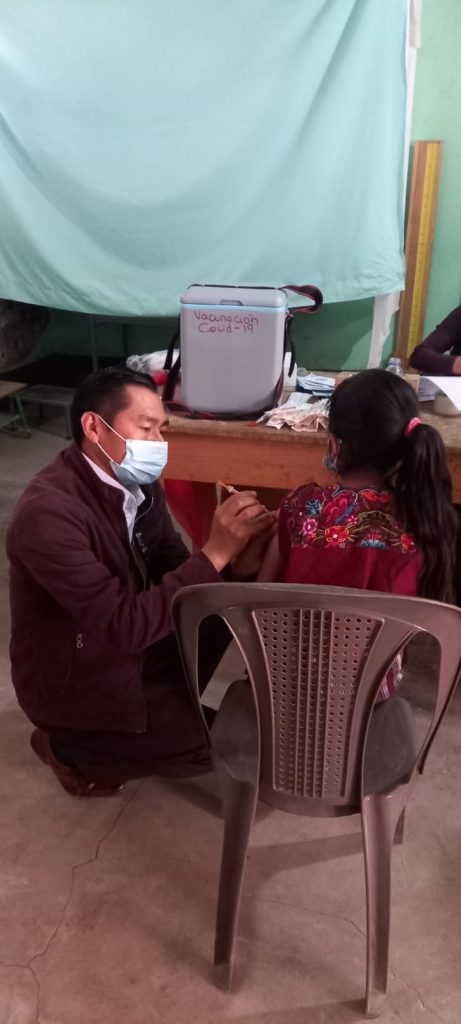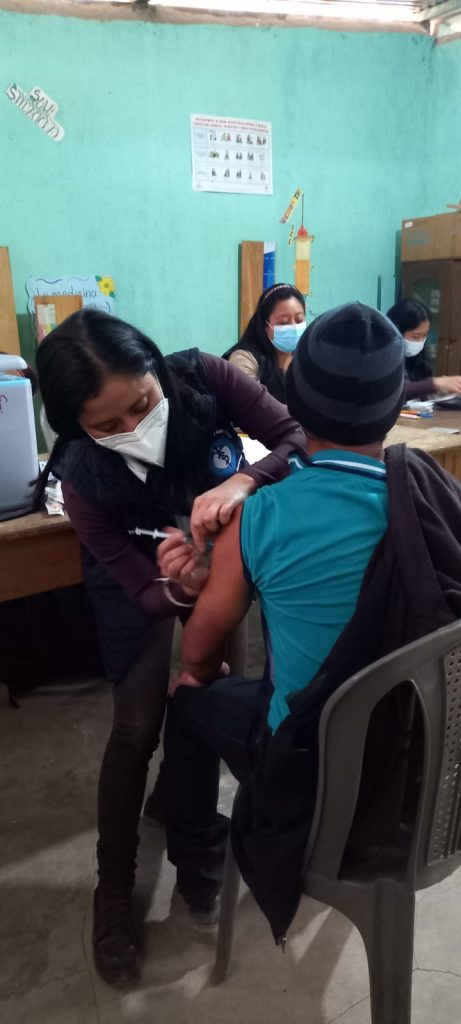The COVID-19 pandemic hit Guatemala hard and changed the country’s public health landscape, exacerbating existing challenges while simultaneously producing new ones. The Guatemalan healthcare system struggled to adapt as the situation developed rapidly, policies changed to address new contexts, and uncertainty inhibited the ability plan for the long term.
Last fall, in light of limited vaccine access and significant vaccine hesitancy due to misinformation circulating through the country, ALDEA’s partner organization in Guatemala, ABPD, asked partner communities about their perspectives on the subject and whether/how they could help. Communities responded that they lacked reliable evidence about vaccines, citing Facebook and YouTube as their primary sources of news, and that they would prefer to receive information from the government via their local health centers. They added that the remote locations of many villages made it difficult to access vaccines, as they had to make long trips using the few public transportation options available to reach larger towns where vaccination was taking place. With these perspectives in hand, ABPD set out to address communities’ concerns while respecting their wishes for how these issues should be tackled.
ABPD was able to find a solution through their existing relationship with the two health centers in Tecpán. They were already working together to share data collected via program monitoring, distribute anti-parasite medications, and educate partner communities about chronic childhood malnutrition. ABPD learned that the health centers did not have access to transportation and other support needed to reach many of the communities they were intended to serve, and they realized they could help.
Now, to better support the health of the local communities, this partnership has been expanded to include vaccine education and administration. ABPD provides transportation, translation, and other logistical support to health center staff so that they can reach the remote rural communities that we partner with, as well as many communities that do not currently participate in our programs. Health center staff provide factual information about vaccines to community members, answering questions and resolving concerns, and they make COVID-19 vaccines available locally to those who want them.
The outcomes of this collaboration have been exceedingly positive. ABPD’s Executive Director, Paco Enríquez, shared in February that “the results of the last survey we conducted were very surprising—many more people than we would have thought have now been vaccinated,” referring to a survey ABPD conducted among its program participants. In our pandemic response, as in all of our work, ALDEA and ABPD are committed to supporting communities in building healthier futures on their terms. We are proud to be able to form, maintain, and draw upon connections with both public and private institutions to support our partner communities in accessing the services they need. We look forward to what further initiatives partnerships like this one may bring.




